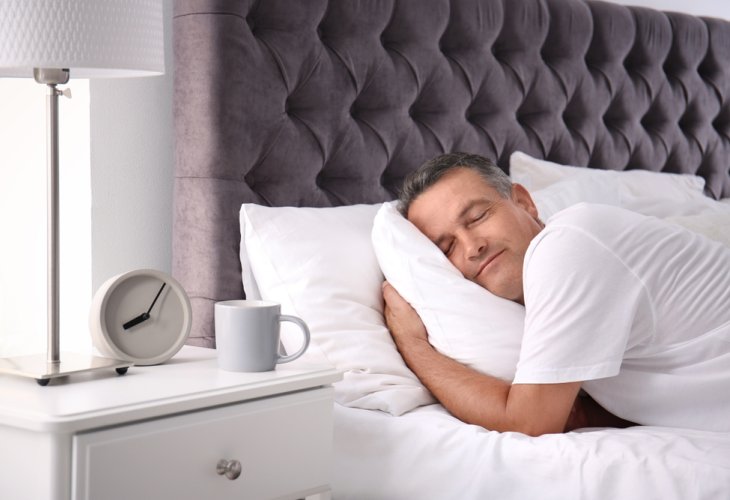New Research Reveals the Impact of Sleep Apnea on the Brain
Struggling with sleep apnea? Here's another reason to tackle it. A new study uncovers a direct link between untreated sleep apnea and brain health. Take a deep breath.
 (Photo: shutterstock)
(Photo: shutterstock)According to new research conducted in Minnesota, USA, untreated sleep apnea can harm future brain health. Currently, there are 936 million adults aged 30-69 worldwide suffering from sleep apnea, many of whom are undiagnosed. Severe untreated sleep apnea can lead to various diseases and even death.
The research indicates that those with severe sleep apnea spend less time in deep sleep, also known as slow-wave sleep, and suffer more damage to the brain's white matter compared to those who experience such sleep.
Why is Slow-Wave Sleep Important?
During deep or slow-wave sleep, the body repairs itself at a cellular level, fixes damage, and stores memories for the long term. Deep sleep essentially heals and strengthens immune function. Slow-wave sleep is when the body "takes out the trash" from the brain. To achieve deep sleep, uninterrupted rest is necessary. According to the American Centers for Disease Control and Prevention, a regular sleep cycle consists of 90 minutes, so most adults need seven to eight continuous hours of sleep for restorative rest.
Constant disturbances make it hard to reach deep sleep, which includes the dream phase known as Rapid Eye Movement (REM). Studies have shown that missing REM sleep may lead to poor memory, cognitive outcomes, as well as heart disease and other chronic diseases. Reduced deep sleep increases the risk of high blood pressure, obesity, and problems regulating blood sugar levels.
What is White Matter in the Brain?
White matter is the tissue that connects brain cells with the rest of the nervous system. When brain scans highlight small white spots known as white matter hyperintensities, they indicate the extent of damage. "For every 10% decrease in deep sleep duration, there was an increase in the brain's white matter hyperintensities," says study author Dr. Diego Carvalho, neurologist at the Mayo Clinic in Rochester, Minnesota.
"The connection with sleep apnea emerged only when isolating severe cases, suggesting that mild to moderate sleep apnea does not significantly associate with changes in white matter," he adds. "However, there is no treatment for such brain changes, so we must find ways to prevent or mitigate them."
According to experts, white matter hyperintensities can slow down the brain's ability to process information, concentrate, and remember, while low levels of white matter are also linked to mental issues such as depression, anxiety, and irritability.
"The findings align with previous studies suggesting that slow-wave sleep plays a crucial role in maintaining brain health," says sleep expert Kristen Knutson, professor of neurology and preventive medicine at Northwestern University, Chicago. "We've also observed a link between poor sleep quality and high blood pressure, which can lead to brain lesions or strokes."
The study by the Mayo Clinic of Aging was published in a renowned journal and examined 140 individuals with an average age of 72. None had dementia or cognitive impairment during the study and underwent one of two types of magnetic resonance imaging (MRI) scans. "The study found that each 10% reduction in slow-wave sleep was equivalent to three years of aging," said Carvalho.
Sleep apnea causes decreases in oxygen and increases in carbon dioxide levels in the body, raising blood pressure and heart rate. "All these changes lead to increased inflammation in the body and brain, activation of stress hormones that raise blood pressure and impact metabolism," he said. "Changes in blood vessels can cause strokes, and poor blood supply to the brain may result in neuronal death or damage to white matter, which can eventually lead to cognitive decline."
It's important to note that diagnosing sleep apnea is now very accessible. If you feel excessively tired during the day or experience memory and cognitive decline, seek a referral to a sleep lab from your family doctor. In a sleep lab, it can be diagnosed overnight, and with *siyata d'shmaya*, treatment can be offered to prevent the damage caused by sleep apnea.

